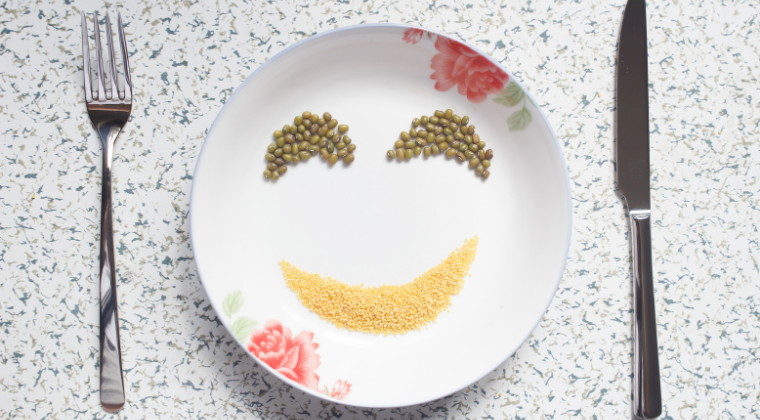We can all remember times when we ate too much and had to have a sleep, felt buzzed up on sugar or caffeine, felt weak or moody because we hadn’t eaten properly, or felt full of vitality having eaten some fresh nourishing food.
It is plain to see that what we eat affects how we feel, yet for some reason, it is not always the first place we think of looking when we don’t feel so good.
Traditionally, mental health issues were thought to occur as a direct result of some chemical dysfunction in the brain, so medical treatment was directed at the brain. More recent studies, however, have shown that mental disorders are not limited to the brain but are, in fact, ‘whole-of-body’ disorders, which are also influenced by the immune system and the gut microbiome, as well as by a whole variety of psycho-social reasons. Discovering the actual extent to which what we eat affects our mood and behaviour is a relatively new field of research, and recent studies are showing some amazing results.
One such study found that feeding violent prisoners healthy diets while in prisons reduced crime by 56% and by a whopping 80% when a multivitamin was added into the mix!
Likewise, in an experimental study of 3,000 incarcerated youths, snack foods were replaced with healthier options, and access to refined and sugary foods was dramatically reduced.
Over the 12-month follow-up there was a staggering:
- 100% reduction in suicides
- 75% reduction in the use of restraints
- 25% reduction in assaults
- 21% reduction in antisocial behaviour
In the Smiles trial by Felice Jackson, 67 participants with long-term clinical depression received dietary support for 12 weeks. During these weeks, they made small healthy tweaks to their diet, such as adding in more legumes, vegetables, fruits, olive oil and whole grains while reducing processed food.
After 12 weeks, 32% of the participants achieved full remission, meaning they were no longer considered depressed!! The people who improved their diets the most also had the most improvement in their depressive symptoms. Equally surprisingly and important to note, the cost of their food bill also went down!!
Obviously there are many factors that result in poor mental health but unlike most risk factors for depression including poverty, trauma and abuse, diet is something we can easily modify. Within the new field of Nutritional Psychiatry, researchers aim to identify nutrition-based approaches to preventing and treating mental disorders. A lot of this work is being done at the Food and Mood Centre in Australia.
How does diet impact our emotional health so much?
Well, the answer lies in the gut – microbiome – mental health triangle. The gut and brain have a 2-way communication system. And as we learn more about the 100 trillion micro-organisms which predominantly live in our gut, we are beginning to understand how they influence all aspects of our health, including brain chemistry and behaviour.
It turns out that as these bugs digest the plant fibre, which is indigestible to us, they create a host of by-products including vitamins, antioxidants, anti-inflammatory agents, hormones, and metabolites that regulate the immune system, and as the latest research is showing, command the CNS and brain.
It is primarily in the gut, not the brain, that these micro-organisms help convert tryptophan into serotonin, the ‘feel-good’ neurotransmitter. The gut produces more than 90% of the body’s serotonin! Other important hormones made in the gut that affect how we feel include:
- Dopamine, the motivation hormone
- Oxytocin, which looks after love, trust, and self-esteem
- Melatonin, the darkness hormone which encourages good sleep, and we all know how rubbish we feel when we don’t sleep well!
Looking after these gut micro-organisms is a key factor in good mental health, and the biggest thing that affects them is our diet.
To nourish our good bugs, we need to eat food from a wide variety of vegetables, legumes, and fruits as they contain the dietary fibre the bacteria and viruses like to digest. We also need to cut down on the foods that the good bugs don’t like, such as sugars and refined highly processed foods. Click here for a list of microbiome friendly foods.
Other big threats to our microbiome come from:
- Antibiotics, though sometimes necessary, they act as napalm to our microbiome village
- Over sterilisation, which is unavoidable right now given the COVID crisis
To help support the microbiome, especially after a course of antibiotics, good quality probiotics, which contain both the good micro bacteria and the food they like to eat, (known as prebiotics), can be taken.
Synergy Worldwide manufactures an all in one pre- and probiotic called ‘biome actives’. They have also formulated a ’21-day diet and supplementation’ programme, which helps get your gut back into balance.
Interestingly many people who have done this 21-day programme, myself included, not only experienced improved physical health and better digestion, but also felt an increase in energy, a deeper feeling of wellbeing, positivity, better sleep, and a reduction in feelings of anxiety.
For more information about Synergy’s 21-day programme or to register for a webinar held every other Wednesday evening about the microbiome and how to support it, please contact me.
What we eat matters on every level. So next time you go to eat something, why not pause a moment and ask yourself: “Does this nourish all of me, including those trillions of bacteria that are working tirelessly inside of me, to bring me good health?”
And if the answer is no, maybe chose something else instead.
words: Helen Prosper







